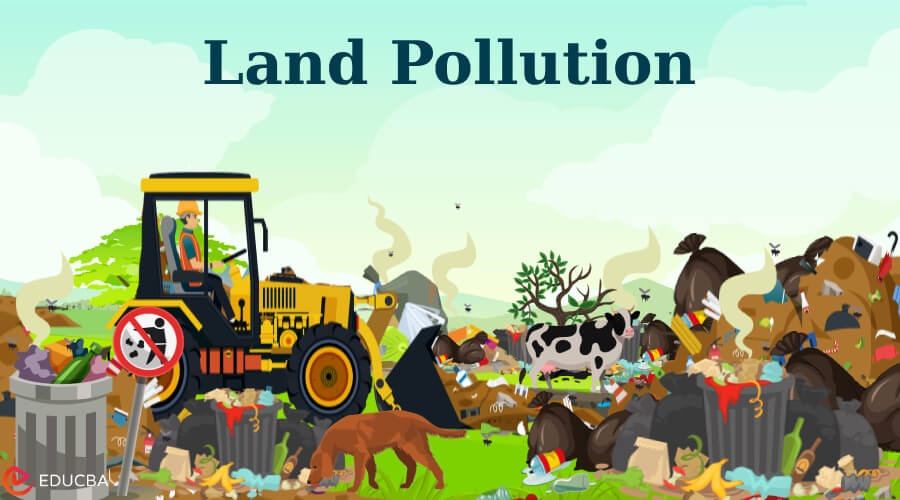Introduction
Land pollution is a pressing environmental issue with far-reaching impacts on ecosystems, human health, and the economy. The accumulation of waste, hazardous chemicals, and pollutants on land surfaces degrades soil quality, contaminates water sources, and poses significant risks to both wildlife and human populations. Non-Governmental Organizations (NGOs) play a pivotal role in addressing land pollution through advocacy, clean-up initiatives, policy influence, and public education. This article explores the critical need to combat land pollution and highlights how NGOs are leading the charge for a cleaner, healthier future.
Keywords: NGOs, land pollution, waste management, environmental clean-up, soil contamination, hazardous waste, sustainable practices, recycling initiatives, pollution prevention, public health, soil health, waste reduction, community action, environmental advocacy, climate change, sustainable development, green technology, landfill management, plastic waste, eco-friendly practices.
Section 1: Understanding Land Pollution and Its Impact
1.1 What is Land Pollution?
Land pollution refers to the degradation of the Earth’s land surfaces caused by the disposal of waste, chemicals, and pollutants. This includes both solid waste (such as plastics, metal, and paper) and hazardous waste (such as industrial chemicals and heavy metals). Land pollution can result from improper waste disposal, industrial activities, mining, and agricultural practices. It affects not only the appearance of the land but also its capacity to support life and ecosystems.
1.2 The Environmental Impact of Land Pollution
Land pollution has severe consequences for the environment. Contaminated soil can lead to the death of plants and disrupt local ecosystems. Pollutants can leach into groundwater, affecting water quality and leading to the contamination of drinking water sources. Additionally, hazardous substances in the soil can pose risks to wildlife, causing health problems and disrupting food chains. The visual impact of polluted land also detracts from natural beauty and can affect biodiversity.
1.3 The Health Impact of Land Pollution
The health implications of land pollution are significant. Contaminated soil can lead to the spread of diseases and health issues in humans. Heavy metals, such as lead and mercury, can enter the food chain through contaminated crops and water, leading to long-term health problems. The presence of hazardous chemicals and pollutants in soil can contribute to respiratory issues, skin conditions, and other serious health concerns. Communities living near polluted areas are often at higher risk of health problems due to their proximity to contaminated land.
1.4 The Economic Cost of Land Pollution
The economic impact of land pollution is substantial. Cleanup and remediation of polluted sites can be extremely costly, requiring significant investment from governments and businesses. The presence of land pollution can also reduce property values, impact agriculture, and hinder economic development. Additionally, the cost of healthcare related to pollution-induced health problems adds to the economic burden. Addressing land pollution is not only an environmental necessity but also an economic imperative to prevent further financial strain.
Section 2: How NGOs are Tackling Land Pollution
2.1 Advocacy for Waste Management Policies
NGOs play a crucial role in advocating for effective waste management policies. Organizations like the Environmental Defense Fund (EDF) and the Zero Waste International Alliance work to influence legislation that promotes sustainable waste management practices. These policies include regulations on waste reduction, recycling, and proper disposal of hazardous materials. By engaging with policymakers and raising awareness, NGOs help to drive legislative change that reduces land pollution.
2.2 Public Awareness and Education
Raising public awareness about the causes and effects of land pollution is a key focus for many NGOs. Campaigns run by organizations such as Keep America Beautiful and the Global Alliance for Incinerator Alternatives (GAIA) aim to educate the public on the importance of reducing waste, recycling, and properly disposing of hazardous materials. Education initiatives often include community workshops, informational materials, and social media campaigns to spread the message and encourage positive behavior changes.
2.3 Implementing Cleanup Projects
NGOs are actively involved in cleanup projects to remove pollutants and waste from contaminated land. Initiatives such as the Earth Day Network’s clean-up events and the Clean Up the World campaign engage volunteers in removing trash and hazardous waste from parks, rivers, and urban areas. These projects help restore the environment, improve public spaces, and demonstrate the power of community action in addressing land pollution.
2.4 Promoting Sustainable Waste Management Practices
Sustainable waste management is essential for reducing land pollution. NGOs like the Institute for Local Self-Reliance (ILSR) and the Center for Zero Waste Design work to promote practices that minimize waste generation and maximize recycling and reuse. These organizations provide resources, support, and guidance on implementing sustainable waste management systems at both the community and organizational levels.
2.5 Supporting Recycling and Upcycling Initiatives
Recycling and upcycling are effective strategies for reducing land pollution. NGOs such as the Recycling Partnership and the Upcycle That organization focus on increasing recycling rates and promoting innovative uses for recycled materials. These initiatives help reduce the volume of waste sent to landfills and encourage the development of products made from recycled materials, contributing to a circular economy.
2.6 Addressing Hazardous Waste Management
Proper management of hazardous waste is critical for preventing land pollution. NGOs like the Basel Action Network and the Environmental Integrity Project work to address the challenges of hazardous waste disposal and management. These organizations advocate for stricter regulations on hazardous waste handling, promote safe disposal practices, and support the development of technologies for managing and reducing hazardous waste.
2.7 Encouraging Community-Led Initiatives
Community-led initiatives play a significant role in tackling land pollution. NGOs often support local groups in organizing clean-up events, educational campaigns, and waste reduction projects. By empowering communities to take action, NGOs foster a sense of responsibility and involvement in addressing land pollution. Community initiatives also help to address local pollution issues and create cleaner, healthier environments.
Section 3: How Individuals Can Help Combat Land Pollution
3.1 Reducing Waste Generation
One of the most effective ways individuals can help combat land pollution is by reducing waste generation. This can be achieved by making mindful choices about consumption, opting for products with minimal packaging, and avoiding single-use items. By adopting a zero-waste lifestyle and practicing mindful consumption, individuals can significantly reduce the amount of waste that ends up in landfills and contributes to land pollution.
3.2 Recycling Properly
Proper recycling practices are essential for reducing land pollution. Individuals should follow local recycling guidelines, separate recyclable materials from general waste, and avoid contaminating recyclables with non-recyclable items. By recycling correctly, individuals help ensure that materials are processed and reused rather than ending up in landfills.
3.3 Participating in Clean-Up Events
Participating in clean-up events organized by NGOs or community groups is a hands-on way to contribute to reducing land pollution. These events often involve removing litter and waste from public spaces, parks, and natural areas. By joining clean-up efforts, individuals can make a direct impact on the environment and contribute to the restoration of polluted areas.
3.4 Supporting Sustainable Products and Businesses
Supporting businesses that prioritize sustainability and eco-friendly practices helps reduce land pollution. Individuals can choose products made from recycled materials, support companies with zero-waste policies, and advocate for sustainable practices within their communities. By making informed purchasing decisions, individuals contribute to a reduction in waste and pollution.
3.5 Advocating for Policy Change
Advocating for policy change at the local, national, or international level is a powerful way to address land pollution. Individuals can engage with policymakers, support legislation aimed at reducing waste and pollution, and participate in public consultations and campaigns. Advocacy efforts help drive systemic change and create a more sustainable future.
3.6 Educating Others
Education is key to addressing land pollution. Individuals can share information about the causes and effects of land pollution with friends, family, and community members. By raising awareness and encouraging others to adopt sustainable practices, individuals contribute to a broader movement to combat land pollution.
3.7 Using Eco-Friendly Products
Choosing eco-friendly products, such as biodegradable cleaning supplies and compostable packaging, helps reduce the environmental impact of everyday activities. By opting for products that are designed to minimize waste and pollution, individuals can reduce their contribution to land pollution and support more sustainable practices.
Section 4: Case Studies of Successful NGO Initiatives
4.1 The Earth Day Network’s Global Clean-Up Campaign
The Earth Day Network’s global clean-up campaign is one of the largest and most impactful initiatives aimed at addressing land pollution. The campaign mobilizes millions of volunteers around the world to participate in clean-up events and restore polluted areas. Through these efforts, the Earth Day Network has successfully removed tons of waste from land and raised awareness about the importance of environmental stewardship.
4.2 The Zero Waste International Alliance’s Advocacy
The Zero Waste International Alliance (ZWIA) is an NGO that advocates for zero-waste policies and practices. ZWIA works with governments, businesses, and communities to implement waste reduction strategies and promote sustainable waste management. Their advocacy efforts have led to the adoption of zero-waste policies in various regions, contributing to significant reductions in land pollution.
4.3 The Basel Action Network’s E-Waste Initiatives
The Basel Action Network (BAN) focuses on addressing the issue of electronic waste (e-waste) and its impact on land pollution. BAN’s initiatives include advocating for stricter regulations on e-waste disposal, promoting responsible recycling practices, and raising awareness about the dangers of e-waste. Their work has led to improved e-waste management practices and reduced the environmental impact of electronic waste.
4.4 The Keep America Beautiful’s Community Clean-Up Programs
Keep America Beautiful (KAB) is an NGO that runs community clean-up programs across the United States. KAB’s programs engage volunteers in removing litter, recycling materials, and beautifying public spaces. Their efforts have resulted in cleaner communities, reduced land pollution, and increased public awareness about the importance of environmental responsibility.
4.5 The Plastic Pollution Coalition’s Plastic Waste Reduction
The Plastic Pollution Coalition is dedicated to reducing plastic waste and its impact on land pollution. The organization works to raise awareness about the environmental hazards of plastic pollution and advocates for policies that reduce plastic production and consumption. Their initiatives have led to significant progress in reducing plastic waste and promoting sustainable alternatives.
Conclusion
Addressing land pollution is essential for protecting the environment, public health, and economic stability. NGOs play a critical role in combating land pollution through advocacy, clean-up initiatives, education, and policy influence. By supporting NGOs, adopting sustainable practices, participating in community efforts, and advocating for change, individuals can contribute to the fight against land pollution and help create a cleaner, healthier planet. Together, we can make a difference and ensure a sustainable future for generations to come.



